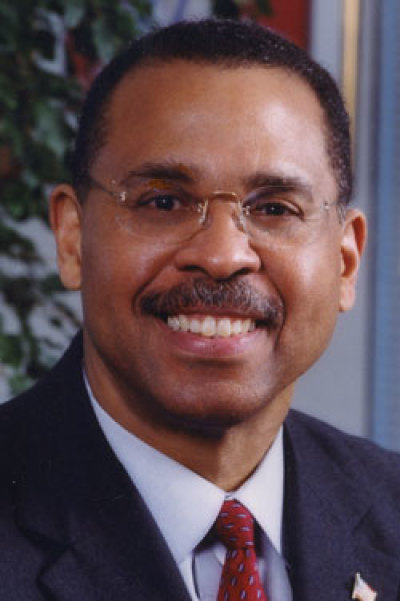Expanding Relations With the Iranian Resistance Is Essential to Correct Iran Policy

Last week I joined a bipartisan group of political figures and foreign policy experts in taking two steps to encourage the improvement of US policy toward Iran. The group of nearly forty prominent Americans including former senior US civilian and military officials and governors issued a policy statement urging stronger confrontation of Iran's nuclear ambitions, regional hostilities, and human rights abuses.
That statement also encouraged the US government to reverse its traditional, unspoken policy of remaining at arms' length from the resistance against the Iranian theocracy. My view and that of the co-signers of the statement is that the ten-point plan of the National
Council of Resistance of Iran, represents a viable alternative to an intractably hostile Iranian regime.
Simply supporting that alternative and coordinating with it politically would go a long way toward safeguarding Western interests. Our group and other Americans made an effort to demonstrate the potential for dialogue and collaboration between Western nations and the Iranian resistance when we attended the NCRI rally for the cause of freedom and democracy in Iran. We were joined by similar bipartisan delegations from many other countries, spanning five continents and including close US allies like the UK, Canada and Australia.
The members of those delegations recognizably share our sentiments about the Iranian resistance and understand, as we do, that the way forward in dealing with the Islamic Republic is to go on exerting political and economic pressure on the regime in partnership with the country's domestic opponents, who speak for the potential of the Iranian people to establish the democracy and civic freedoms that they have been denied for much of their history, especially under the rule of the ayatollahs.
The NCRI rally has grown every year and has been described as a microcosm of Iranian society. Certainly at this year's event there was a substantial presence of the young and old, rich and poor, even Muslims and non-Muslims. Virtually the only unifying characteristics among the estimated 100,000 participants was their past history as victims or families of victims of the regime, and their commitment to the rally's central message, embodied in the ten-point plan that was outlined by NCRI President Maryam Rajavi.
My co-signers and I are well familiar with this plan, which includes a commitment to free and fair elections, the rule of law, safeguards for the rights of women and minorities, separation of church and state, and a non-nuclear Iran that makes every effort to maintain peace with its neighbors.
I can only assume that the President Obama has neither read nor contemplated the implications of the ten-point plan. And that is why it is important for delegates from a sitting US government to attend future instances of the NCRI's June rally or any of its other activities. If they would simply give a fair hearing to the NCRI platform, as the policy statement points out they have not done, those delegates would quickly understand how much the goals of the resistance dovetail with the long-term interests of Western nations with regard to Iran and the broader Middle East.
Just as crucial, representatives of a sitting government would be sure to come away from an NCRI rally with a clear sense of the importance of these issues. Each event that I attend renews that sense as I speak to persons who have lost family to the Iranian regime's torture and executions and as I read the names of martyrs who could have been saved from the heavy hand of Iran and its proxies if only the US had fulfilled its responsibilities in the region.
As our statement pointed out, more than 142 people have died in
Iranian exile communities in Iraq since the US left those people behind, still holding documents guaranteeing them Protected Persons
Status.
Inside of Iran political imprisonments and torture continue as usual and the rate of executions is steadily climbing even under the presidency of the supposedly moderate Hassan Rouhani. Notions of moderation in Iran's dealings with the US are falling apart as the June 30 deadline for a nuclear agreement draws near and Iranian demands remain outlandish.
Meanwhile, the Islamic Republic is ramping up its support for terrorist groups and other rogue states while injecting itself into regional conflicts and posing new threats to its neighbors.
It is as important as ever that the US government both recognizes another alternative to that regime and that it commits to a policy of using every available resource to pressure the regime to scale back its aggression and human rights abuses. The attendance of 100,000 Iranian exiles, their families, and their western supporters at Saturday's rally speaks to the network of human resources inside the country that could aid in this goal.
The role of the NCRI in exposing details of the Iranian nuclear program has long since demonstrated to Western policymakers that the resistance could be a valuable ally. The current administration needs only to give due attention to that resistance in order to better understand the other ways in which it can help Western nations to achieve appropriate goals in Iran without sacrificing their own blood and treasure.
My colleagues and I have made the case directly to the US government for this newly collaborative relationship. I hope that it will listen, but now I bring this issue to the American people, as well. If you are concerned about the threat posed by Iran, see to it that your representatives in government understand that there is a ready bulwark against that threat, and it has been ignored for too long.



























